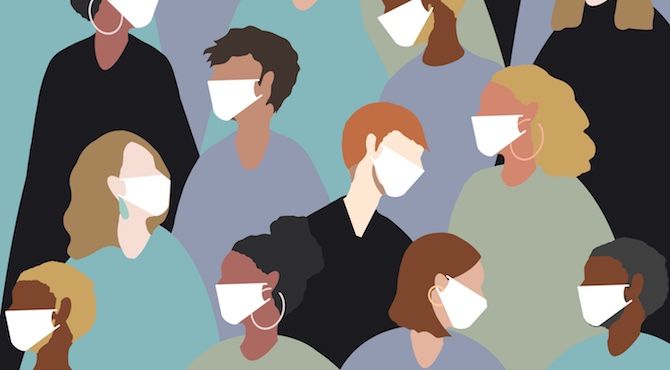
It was only a matter of time until I received a call from a client saying that one of their employees had been exposed to the Coronavirus. Here’s what I told them about how to proceed, how to avoid HIPPA violations, and how to protect the rest of their staff.
What does a company do after learning that an employee has been exposed to or diagnosed with Coronavirus?
First, the employee should stay home for at least 14 days or until they’re cleared by their doctor if they get COVID-19. This should go without saying! Make arrangements for telework if that fits the situation or for whatever form of leave they are taking.
Next, determine who has had sustained contact with this employee. Any other employee (or client) who had sustained contact should also stay home for at least 14 days or, if they are diagnosed with COVID-19, until they are cleared by their doctor. What is sustained contact? Essentially, sustained contact is defined as being within 6 feet or in a confined space (such as a room) with the exposed or infected individual for a prolonged period of time or having direct contact with their secretions (sneezes, coughs, saliva, and so forth). The CDC offers more detailed guidance about sustained contact on its website: https://www.cdc.gov/coronavirus/2019-ncov/index.html.
In all situations, the employer must have the workplace deep cleaned and sterilized by professionals. Until that happens, whip out the Clorox wipes yourself the second you find out and start wiping down everything in sight.
Of course, you need to inform co-workers and clients (if the employee works with clients) that they have been exposed. But by law (HIPPA) you can’t name names. So don’t announce in an email or office huddle that “Julie” was diagnosed or exposed. All you can tell your other employees and clients is that they may have been exposed to the virus. Be professional, maintain confidentiality, and be prepared for anxiety and a lot of questions from the staff. If the exposed employee wants to tell co-workers, that’s their choice, but don’t make that choice for them.
What if an employee’s family member has been diagnosed with Coronavirus?
Everything above also applies when an employee’s family member is exposed to or diagnosed with COVID-19. These employees also must stay home for at least two reasons: one, you don’t want them infecting anyone in the office; and two, they likely will need to care for their loved one. Bottom line is, if anyone in a household has tested positive, the entire household must be quarantined.
Can employers discuss the fact an employee has Coronavirus with others in the workplace?
I’m repeating this information—it’s critical. NO, employers cannot discuss a particular employee’s condition with their co-workers or clients (or anyone else for that matter). The Americans with Disabilities Act (ADA) requires that employers must keep employees’ personal medical information confidential. Of course, as we mention above, you must inform the rest of your staff of their possible exposure, but you cannot discuss the infected person with the staff or identify them in any way. In a small office, it might be fairly obvious who you are talking about, but—AND I CAN’T EMPHASIZE THIS ENOUGH—you may not confirm that fact in words, written or spoken, or nonverbal communication. It’s a matter of liability for you and your business.
